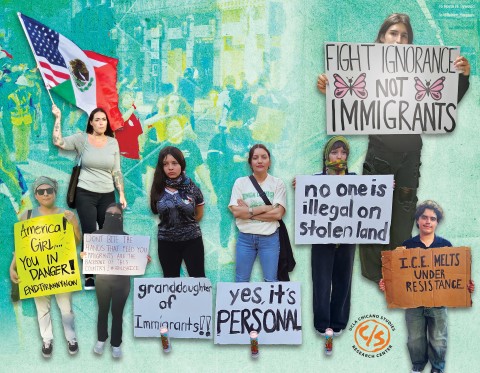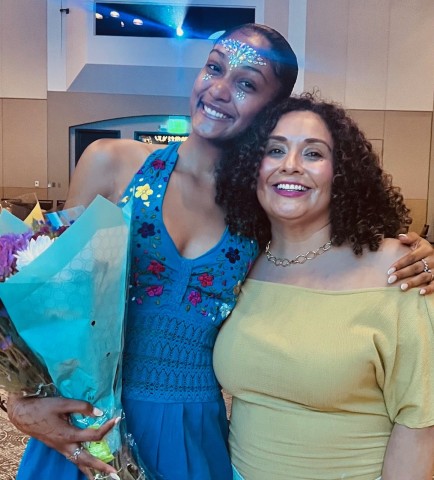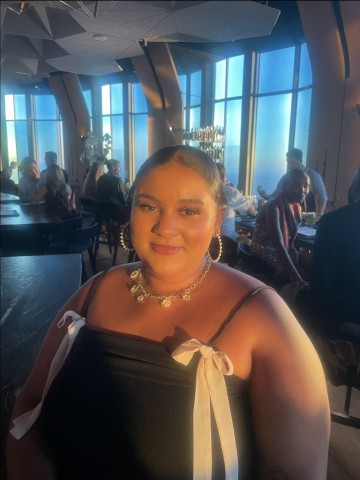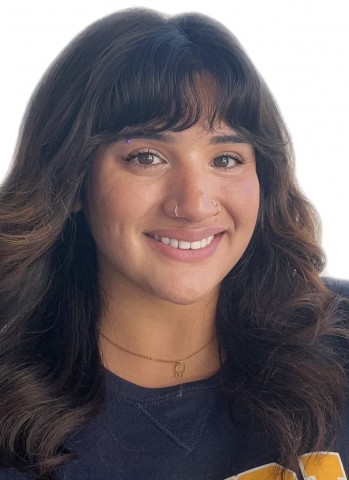CFS 2025 to focus on Central Valley youth
This July the CSRC, in partnership with other UCLA IAC ethnic studies research centers, will launch California Freedom Summer (CFS) in the Central Valley. The cohort of nine students participating in this year’s project will be trained to conduct participatory-action research for studies that will present data on attitudes and perspectives on civic engagement held by young people in the Central Valley. Also participating will be members of the student-run organization Central Valley Project @ UCLA. Together, these students will build the capacity of Central Valley communities to contribute to research that can lead to positive change. Further, the researchers will be placed with local grassroots and youth development organizations. These efforts align with UCLA’s strategic plan, which aims to increase and enhance the university’s engagement with the broader community. CFS is generously supported by UCLA Gold Shield Alumnae, the California Endowment, the Stuart Foundation, and individual donors.
Latinx Success Center opens
The UCLA Latinx Success Center (LSC) opened March 31 following the dedicated efforts of the UCLA Hispanic Serving Institution Committee, the UCLA Division of Undergraduate Education, UCLA Student Affairs, and the CSRC. Through cross-campus collaborations, academic resources, and programming, the LSC will enrich students’ experiences at UCLA while supporting efforts toward UCLA becoming a Hispanic-Serving Institution. To connect with the Latinx Success Center, please contact the inaugural executive director, Arlene Cano Matute, at acanomatute[at]college.ucla.edu, or visit the center’s
website. LSC is located in De Neve Commons, B1 Lounge, and is open Monday through Friday, 9:00 a.m.
–5:00 p.m.
CSRC cosponsors Afro-Latinx culture show
On June 6, the CSRC cosponsored the third annual Afro-Latinx culture show hosted by Afro-Latinx Connection de UCLA, a student organization. Open to the public, over 400 people attended
“Raíces y Ritmos,” this year’s celebration of the history, food, music, and dance of the Afro-Latinx community and the African diaspora. The event took place in the Covel Grand Horizon Ballroom and was cosponsored by UCLA Hispanic-Serving Institution office.
Jasmine Aner, copresident of Afro-Latinx Connection de UCLA, and Celia Lacayo, CSRC assistant director, at the third annual Afro-Latinx culture show on June 6.
Camarillo talk on CSRC YouTube
On April 30 in the CSRC Library, Albert M. Camarillo, Stanford University Leon Sloss Jr. Memorial Professor of History, emeritus, presented his memoir,
Compton in My Soul: Life in Pursuit of Racial Equity (Stanford University Press, 2024). Camarillo, who received his PhD from UCLA in 1975, is regarded as one of the founding scholars of Chicano studies and the field of Mexican American history. The talk was recorded and is now available for viewing on the
CSRC YouTube channel.
Reflecciones now available through UCLA Library
Fifty-six episodes of Reflecciones, a public affairs program that offered Chicana/o/x perspectives as an alternative to network news, are now available for study and research on the UCLA Library Digital Collections platform. Reflecciones was produced for the Los Angeles television station KABC and aired in 1972–74. The master videotapes were duplicated and the copies donated to the CSRC through the efforts of CSRC staff and distinguished professor and former CSRC director Chon Noriega. Support from the John H. Mitchell Television Preservation Endowment allowed the UCLA Film & Television Archive to preserve and digitize the videotapes. These episodes of Reflecciones provide the creators' record of Los Angeles’s Chicana/o/x communities during a pivotal time of social change in Los Angeles. Watch online at digital.library.ucla.edu/reflecciones.
Valle publishes article
While pursuing her doctorate in sociology at UCLA, Ariana Valle, now assistant professor of sociology at UC Davis, received support through the IAC research grant program at the CSRC to conduct data collection in Florida. Based on that research, Valle recently published “Political Bridging and Struggles in Puerto Rican/Latino Solidarity Politics” in
The Florida Historical Quarterly.
The article examines how a politics of solidarity was forged between Puerto Ricans and Latinos in Orlando during the 2016 election cycle.
Father Richard Estrada, ¡presente!
The CSRC mourns the passing of Father Richard Estrada—a religious figure, community leader, and champion of immigrant rights. Estrada was born Canon Richard Estrada in 1942 and was raised in Los Angeles. In 1978, Estrada was ordained to the priesthood, and César Chávez, who met Estrada during the grape boycotts and remained a close friend, was in attendance. From 1978 until 2014, Estrada served as associate pastor at La Placita (Our Lady Queen of the Angels) in downtown Los Angeles, where sanctuary was provided for Central American refugees. In 1989, he founded Jovenes, Inc., the city’s first shelter for unhoused immigrant youth. In 2014, he moved to the Church of the Epiphany in Lincoln Heights, where he continued in a faith-based leadership role. At the CSRC, the Father Richard Estrada Papers are being processed as part of
“Religion, Spirituality, and Faith in Mexican American Social History, 1940–Present,” a CSRC archival project funded by the National Endowment for the Humanities. The collection will be available to the public this summer. Father Richard Estrada,
¡presente!
Reflections from graduating CSRC student researchers
Kennedy McIntyre
“This spring, I will graduate with a Bachelor of Arts degree in International Development Studies and a minor in Community Engagement and Social Change. I have been an undergraduate research assistant at the Chicano Studies Research Center (CSRC) for the past three years. I had the joy of starting my time with the center as a California Freedom Summer participant, where I took my first steps into organizing through my work on Sacramento’s 2022 Measure L campaign, which established $10 million of funding for the city’s children and youth. After my time in California Freedom Summer, I joined the CSRC as an undergraduate research assistant. There I published, as sole author, a paper about the work it took the city of Sacramento to enact its children’s fund. I also had the pleasure of speaking at several conferences about my experiences in California Freedom Summer and working on a campaign.
One of the biggest things I have learned at the CSRC is that meaningful change is possible when research, community voices, and advocacy come together. At the center, I saw firsthand how research rooted in justice can support grassroots efforts, inform policy, and lift calls for equity. Working alongside organizers and researchers has taught me that change is not just about ideas; it is about listening to the needs of a community, supporting these needs with research and data, and staying persistent while we work to change unjust systems.
The center has given me incredible opportunities to grow as a researcher, an organizer, and a professional. In the fall, I will be starting as a California Senate Fellow, where I will work as part of the public policy staff of a California state senator in the state capitol. As I prepare to leave the center, it is with a grateful heart to all of the memories, opportunities, and amazing people that have made my journey what it has been. Thank you, Dr. Veronica Terriquez, Dr. Chantiri Abarca, and the entire CSRC team for the joy, love, and care you have poured into my UCLA journey."
Desiree Rodriguez
"As my time at the Chicano Studies Research Center comes to an end, I am saddened yet so thankful for the memories and friends I made along the way. Over the past two years I have seen the center evolve, and with it, so did I.
Joining the CSRC in September of 2023 as a student researcher marked the beginning of a significant journey for me. The experience has deepened my love and appreciation of the Chicano culture and makes me feel blessed to be a part of a mission that values our people’s success.
Here at the center I have coauthored three reports that focus on my hometown, and developed practical skills in data entry and analysis. Coming from the city of Coachella, and a largely farming and Hispanic community, has shaped me into who I am and what I want to focus on in my own research. As a graduate of Coachella Valley High School and the College of the Desert, I feel incredibly lucky to have found my place here at the CSRC.
Thank you to Dr. Terriquez, who saw the potential in this transfer student—this opportunity has been transformative and given me the skills to continue being successful as I move forward. Thank you, Dr. Lacayo, Dr. Chantiri, Victoria, Maggie, Gaby, and the rest of the CSRC team for providing a safe environment for students to learn and thrive in.
Post-graduation I will be focusing on preparing graduate applications for programs offering a master’s degree in higher education and student affairs. NYU is my top choice."
The CSRC is grateful to the California Endowment, the Stuart Foundation, the San Francisco Foundation, the Diane Tamar Wilson Fund, and the Latina Futures Lab for their continued support of young researchers conducting applied research.
Library
Flores presents at WonderCon
In March, CSRC librarian and archivist Xaviera Flores participated in the panel “Hip-Hop and Comics: Cultures Combining” at the annual WonderCon convention in Anaheim. Flores discussed the history of Latinx comics and visual literature in relation to West Coast hip-hop culture and the Chicano and larger civil rights movements of the 1960s. In addition, she presented on the panel “Pop Culture on Display! Comics in Museums,” discussing her experience as an archivist stewarding comic and visual literature collections, supporting the selection and curation of materials for exhibitions, and executing the process of loaning comics to museums and galleries.
Flores presents on Homosaurus at LASA
On May 26 at the Latin American Studies Association (LASA) annual conference in San Francisco, Flores shared the CSRC’s efforts at employing the vocabulary of Homosaurus, an international language thesaurus of LGBTQ+ terms and vocabulary, for CSRC collections. Participating on the panel “Building the Spanish Homosaurus: Enabling and Enhancing Spanish-language Access to LGBTQ+ Resources in Libraries, Archives, and Museums,” Flores presented alongside colleagues at institutions partnering on the Homosaurus Project, including University of Washington, Northeastern University, and San Francisco Public Library.
Classes visit library for archival instruction
The CSRC Library welcomed two classes for archival instruction during spring quarter. On May 7, fifty students in CCAS 157: “Chicano Movement and Its Political Legacies,” taught by Virginia Espino, visited the library. On May 12, archival instruction was provided to twenty-five students in IS 281: “Historical Research Methods,” taught by Shawn VanCour.
Exhibitions on view with CSRC loans
The following exhibitions currently on view include images and artworks from CSRC collections and publications:
-
-
Histories of Latino/a and Latinx Medicine in California, Lane Medical Library lobby, Stanford, California.
On view indefinitely. Also online in
English and
Spanish.
CSRC Library summer hours: General library, archives, and research services are available by appointment only. To schedule a research consultation, please CLICK HERE. For all other inquiries and support, please email librarian@chicano.UCLA.edu or visit our research guide at https://guides.library.ucla.edu/csrc. UCLA Students can also seek reference assistance on the UCLA Slack Channel #csrc-library-reference-help.
Press
Press publications win IPPYs
On May 28, two publications from CSRC Press were announced as winners of 2025 Independent Publisher Book Awards (IPPYs).
Amalia Mesa-Bains: Rituals of Memory, Migration, and Cultural Space, by Tomás Ybarra-Frausto, won a gold medal in the Biography category. In addition,
“There Are No Hispanic Stars!” Collected Writings of a Latino Film Critic in Hollywood, 1921–1939, edited and translated by Colin Gunckel and Laura Isabel Serna, earned a bronze medal in the Popular Culture category. Established in 1966, the IPPYs are an international award program created to recognize exceptional publications by independent, university, and self-published authors.
New issue of Aztlán
Aztlán’s Spring 2025 issue features essays on the systematic removal of Brown people of Indigenous ancestry and heritage from the United States, gay heartbreak narratives in the HBO series
Looking and the music of Omar Apollo, and the role of the robe worn by boxing champion Carlos “El Famoso” Hernández in drawing attention to the historical narratives of El Salvador and Central America. In the Dossier section, co-curators Marissa Del Toro and Cecilia Fajardo-Hill bring together essays on Latin American and Latinx artists who challenge gendered constructs and cultural expectations through their exploration of the imaginary body. The work of Chicana artist Linda Vallejo is the subject of the Editor’s Commentary, and the mixed-media work of Neo Bustamante appears on the cover and in Artist’s Communiqué.
CSRC In the News
Daily Kos, June 8, 2025
Daily Bruin, June 3, 2025
UCLA Department of Chemistry and Biochemistry, May 23, 2025
UC Santa Cruz News, May 20, 2025
Glasstire, May 17, 2025
UCLA Department of Chemistry and Biochemistry, April 10, 2025
Los Angeles Daily News, April 1, 2025
Amigos 805, March 31, 2025
The UCLA Chicano Studies Research Center acknowledges the Gabrielino/Tongva peoples as the traditional land caretakers of Tovaangar (the Los Angeles basin and So. Channel Islands). As a land grant institution, we pay our respects to the Honuukvetam (Ancestors), ‘Ahiihirom (Elders) and ‘Eyoohiinkem (our relatives/relations) past, present and emerging.




